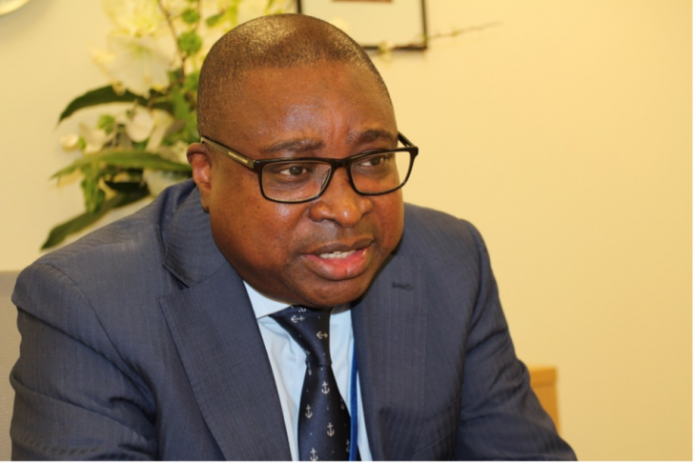By Amin Kef (Ranger)
The Monetary Policy Committee (MPC) of the Bank of Sierra Leone (BSL) convened on September 30, 2024, under the chairmanship of the Governor, Dr. Ibrahim L. Stevens. The Committee evaluated recent global and domestic macroeconomic developments, financial market trends and potential risks to domestic inflation and growth. After thorough deliberations, the MPC recommended raising the Monetary Policy Rate (MPR) by 0.50 percentage points to 24.75 percent. This recommendation was approved by the BSL Board of Directors during its 543rd meeting on the same day.
The MPC acknowledged the resilience of global economic activity since the beginning of 2024, largely due to improvements in global trade, favorable financial conditions, and a reduction in global inflation. The International Monetary Fund’s (IMF) July 2024 World Economic Outlook projected global GDP growth to remain steady at 3.2 percent in 2024, with a slight increase to 3.3 percent in 2025. Global inflation is expected to decline further, with projections of 5.9 percent for 2024 and 4.4 percent for 2025.
However, the Committee expressed concerns over persistent geopolitical tensions, notably the Russia-Ukraine war and conflicts in the Middle East, which pose potential risks to the global economic outlook. While the global inflation decline is encouraging, it cautioned that geopolitical uncertainties could still impact domestic prices through supply chain disruptions.
The MPC highlighted a significant reduction in inflationary pressures over the past ten months. Headline inflation decreased by 29.10 percentage points, dropping from 54.59 percent in October 2023 to 25.49 percent in August 2024. This reduction was driven by lower food and non-food prices, stable exchange rates and the Bank’s tight monetary policies. Nonetheless, the Committee noted risks that could reverse this trend, including potential supply chain disruptions, climate risks and currency depreciation.
Going forward, the MPC stressed the importance of maintaining efforts to curb inflation, aiming to lower the cost of living and create a stable price environment, which would enhance Sierra Leone’s economic competitiveness and attract foreign investments.
The rebasing of Sierra Leone’s GDP has led to expectations of a 4.0 percent growth in 2024, lower than the 5.7 percent recorded in 2023. However, the mining sector’s uncertainties are a concern. The economy is expected to grow by 4.5 percent in 2025, driven by anticipated agricultural expansion and a mining sector rebound. The MPC noted ongoing trade tensions as a potential risk to this outlook.
Sierra Leone’s trade deficit narrowed to $115.6 million in the second quarter of 2024, down from $142.4 million in the first quarter. The MPC welcomed this improvement, supported by increased export receipts. The Bank’s foreign exchange reserves covered 2.0 months of imports, slightly lower than the 2.3 months in the previous quarter. The committee expressed optimism that the new Extended Credit Facility (ECF) program agreed upon with the IMF and recent climate-related financing negotiations would further strengthen the economy.
Domestic revenue collection increased by 9.4 percent in the second quarter of 2024 compared to the first quarter. Despite a slight rise in the overall deficit, the MPC commended the government’s fiscal discipline and highlighted the importance of continued revenue mobilization to support BSL’s inflation control efforts.
Key monetary aggregates contracted during the second quarter of 2024 due to a decline in both Reserve Money and Broad Money. Private sector credit increased slightly, though high lending rates continue to constrain private sector investments. The MPC stressed the need for coordinated fiscal and monetary policies to address these issues and reduce the yield on government securities.
The Committee assessed the performance of the financial system, noting that the banking sector remained stable, with Non-performing Loans (NPLs) well within statutory limits. However, it warned that banks’ heavy reliance on Government securities for income could undermine profitability if yields decline. The BSL was urged to strengthen regulatory oversight to mitigate risks related to cybersecurity and fraud.
Despite the downward trend in inflation, the MPC remained cautious, noting that inflation is still high compared to historical levels. The Committee reaffirmed its commitment to price stability and, after assessing risks, recommended a moderate tightening of monetary policy.
As of October 1, 2024, the following rates are in effect:
– Monetary Policy Rate (MPR): 24.75%
– Standing Lending Facility Rate (SLFR): 27.75%
– Standing Deposit Facility Rate (SDFR): 18.25%
The next MPC meeting is scheduled for December 19, 2024.




